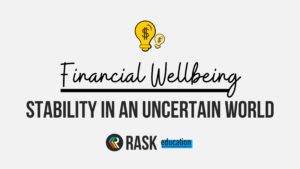As a first home buyer, there are plenty of hurdles to jump over and things to figure out. That’s why I’ve brought in the big guns to bring you 10 awesome tips to make your first home buying journey just that much better in 2021 and beyond!
Amy Lunardi (buyer’s agent) and Chris Bates (mortgage broker) discuss everything from buying a quality first home, finding those elusive off-market and pre-market properties, and designing your property brief to whether LMI is your friend and speaking to the local council.
Tune into this episode (below) of The Australian Finance Podcast to get cracking! Also, available on your favourite podcast player.
I’ve included a short takeaway from each of Chris & Amy’s tips below!
Amy Lunardi’s Top Tips
Be realistic & prepare properly
Be realistic & put effort into preparing your ‘brief’ before you get started. This consists of your:
- budget;
- location; and
- property characteristics.
Make sure to do a reality check in the SOLD tab to make sure what you want is achievable.
Check off-market properties
There are thousands of off-markets for sale across the nation at any point in time, and unless you’re proactively speaking to agents you’re missing out on access to these properties (like going to the supermarket and only being allowed in half the store).
Prepare for a closed envelope/best and highest situation
This is more of a practical tip, but if you’re already in the market and you’re going to properties and you’re putting offers in, sometimes you might find yourself in an offer situation that is called a closed envelope or a best and highest situation.
This can happen with private sales and off-market sales, but it can sometimes happen when someone triggers an offer prior to auction. This means that each buyer gets to put in one offer. The offers aren’t disclosed to anyone else, so you don’t know if you’ve put in $1,000 more than someone else or $100,000 more.
It can be a really, really, really stressful situation because it’s just not transparent, and buyers can feel really uncomfortable. So in these situations, my best advice here is to come back to your own numbers. Think about:
- How much is the property worth based on historical sales?
- How much is the property going to get to based on the current market?
- What is the demand like?
- What other properties are competing against it?
- What is the property worth to you (there may be lifestyle/family factors involved)?
DIY due diligence
There are a lot of ‘free and easy’ due diligence you can do at the start before getting a conveyancer and building inspector involved, like calling the local council and talking to the body corporate.
Access Amy’s inspection checklist and more in our property 101 course!
Deeply understand your market
Go deep into the market you’re buying in. Look at historical sales, understand the supply levels and go to auctions and inspections.
This will help you get a really good feel for price movements, demand and opportunities in the area you’re looking in.
Chris Bate’s Top Tips
First matters most
Remember to focus on the quality of the asset you buy, not the short term lifestyle benefit or social approval.
What does your future home look like?
Consider buying something you can grow into (as your ideally tax free primary residence). A shoebox apartment may be great now, but three years down the road with a partner or kid in tow might make things slightly more sticky.
Lenders Mortgage Insurance (LMI) is your friend
Don’t be afraid to borrow more than 80%, if you are comfortable and it aligns with your goals.
Don’t fall for property FOMO
Consider waiting for more clarity, a pay rise or until you save more before you jump in the deep end.
Take it seriously
Educate yourself and find the right experts to guide you through it.
Don’t fall for government traps (aka incentives to buy new properties) if they don’t align with your plan. Sometimes these schemes are designed to benefit the economy and construction industry, more than they are designed to help you individually.
Don’t forget to tune into this episode of The Australian Finance Podcast to learn more!
Extra Resources
- Take our free property 101 course on Rask Education
- Previous AFP Property Episodes: Ep. 74. Owen’s First Home Buying Journey, Ep. 7. Property Investing & REITs, Ep. 54. Is Now The Best Time to Buy a House? & Ep. 66. Property Investing 101
- Mortgage Broker | Home Buying Specialist (Chris Bates)
- Amy Lunardi Property
- The Elephant in the Room Property Podcast | Australian real estate
- The Buyer’s Bible



